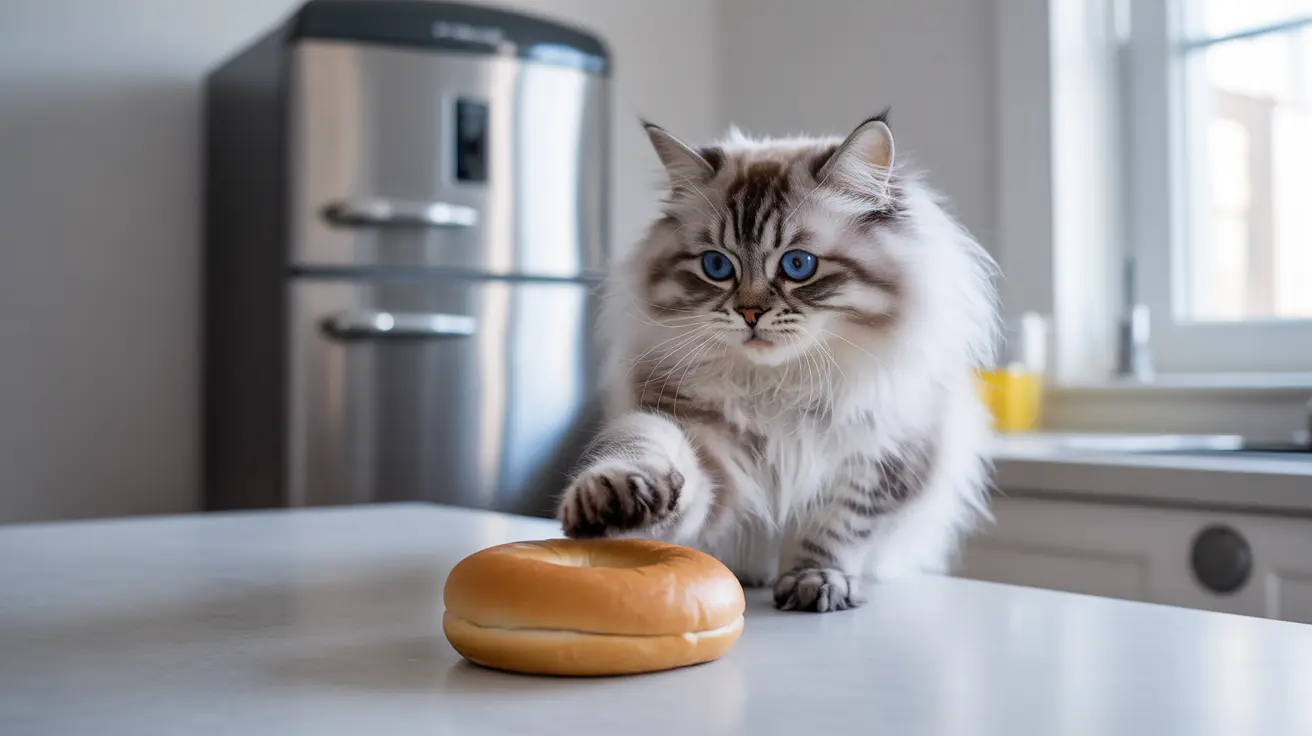If you've ever enjoyed a fresh bagel for breakfast, you might have noticed your feline friend showing interest in this popular human food. As responsible pet owners, it's crucial to understand whether bagels are safe for cats and what risks they might pose to your pet's health.
While plain bagels aren't toxic to cats, they're far from an ideal treat for your feline companion. Let's explore why bagels might not be the best choice for cats and what alternatives you should consider instead.
Understanding Your Cat's Dietary Needs
Cats are obligate carnivores, which means they require a diet primarily consisting of meat to thrive. Their digestive systems are specifically designed to process animal protein, not carbohydrate-heavy foods like bagels. A cat's natural diet should be high in protein, moderate in fat, and very low in carbohydrates.
The Truth About Bagels and Cats
Plain bagels, while not immediately harmful in tiny amounts, offer no nutritional value for cats. They're essentially empty calories that could contribute to weight gain and other health issues. The dense, chewy texture of bagels can also present a choking hazard for some cats.
Potentially Dangerous Bagel Ingredients
Many bagel varieties contain ingredients that can be harmful or even toxic to cats:
- Onion and garlic (including powder forms)
- Raisins and other dried fruits
- Chocolate chips or spreads
- Seeds and certain spices
- Artificial sweeteners
Health Risks of Feeding Bagels to Cats
Regular consumption of bagels can lead to several health issues in cats:
- Obesity and weight management problems
- Digestive upset and gastrointestinal issues
- Potential development of diabetes
- Nutritional imbalances
- Dental problems from sticky dough
Common Bagel Toppings and Their Risks
Popular bagel toppings can pose additional risks:
- Cream cheese can cause digestive issues due to lactose intolerance
- Butter and high-fat spreads may lead to pancreatitis
- Flavored spreads might contain toxic ingredients
- Smoked salmon or other fish toppings may have harmful preservatives
Safe Alternatives to Bagels for Cats
Instead of sharing your bagel, consider these cat-friendly treats:
- Commercial cat treats designed for feline nutrition
- Small pieces of plain, cooked chicken or turkey
- Veterinarian-approved dental treats
- Fresh or freeze-dried meat treats specifically made for cats
Frequently Asked Questions
Can cats eat plain bagels safely, and how much is too much?
While plain bagels aren't toxic, they're not recommended for cats. If your cat accidentally consumes a small piece, it's unlikely to cause harm, but any more than a tiny bite could lead to digestive issues or contribute to weight gain.
What bagel ingredients should I avoid giving my cat because they are toxic?
Avoid bagels containing onions, garlic, raisins, chocolate, artificial sweeteners, or any seeds and spices. These ingredients can be toxic to cats and may cause serious health problems.
Are bagel toppings like cream cheese or butter safe for cats to eat?
Most cats are lactose intolerant, making cream cheese and butter potentially problematic. While not toxic, these toppings can cause digestive upset and should be avoided.
What health risks can feeding bagels to cats regularly cause?
Regular bagel consumption can lead to obesity, diabetes, digestive problems, and nutritional deficiencies in cats. It may also encourage begging behavior and poor eating habits.
What are healthier treat alternatives to bagels for cats?
Choose cat-specific treats, small pieces of plain cooked meat, or commercial cat treats formulated for feline nutrition. Always consult with your veterinarian about appropriate treat options for your cat.
Conclusion
While sharing food with our pets can feel like a way to show love, it's best to skip the bagels when it comes to cats. Focus instead on providing your feline friend with nutritionally appropriate treats that support their health and well-being. Remember, what's tasty for humans isn't always safe or healthy for our feline companions.






